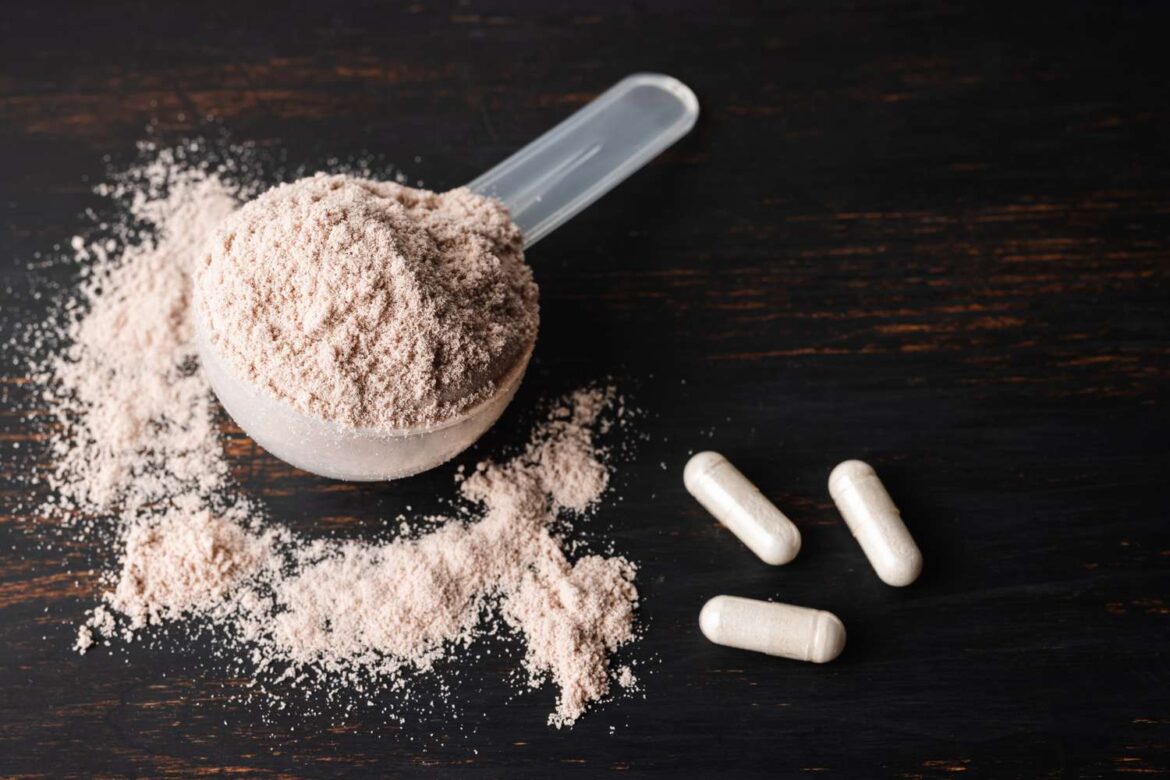Key Takeaways
Small studies suggest combining creatine and magnesium may improve workout performance.Experts say the combination can support both performance and recovery, but research is limited.Taking creatine before your workout and magnesium before bed may help with muscle growth and sleep quality.
Some fitness enthusiasts take creatine and magnesium after a workout to boost muscle gains. Small studies suggest this supplement combination may improve speed, power, and strength-training performance.
What a Creatine-Magnesium Combo Can Do
Creatine is a compound made from amino acids, and magnesium is a mineral that supports protein synthesis. Along with training, creatine can increase muscle strength and mass, and magnesium may help with recovery and exercise performance.
A 2020 study of 16 trained soccer players found that a creatine–magnesium chelate improved sprint speed and power. Another study from 2019 found that taking creatine with electrolytes, including magnesium, helps increase strength and power during certain exercises. You don’t need to take them together, though electrolytes like magnesium may help the body use creatine.
“We know that creatine provides energy to the muscles during high-intensity exercise, and magnesium serves as a cofactor for energy utilization processes. But there is little data to show that this combination has significant effects across various populations,” Alexis Nicole Brown, PharmD, a clinical sports pharmacy specialist at USC Mann, told Verywell in an email.
When Should You Take Creatine and Magnesium?
If you decide to take a combination creatine and magnesium supplement, consider taking it in the morning or with your workout. Otherwise, you can drink creatine during your workout and take magnesium an hour before bed to help with sleep, said Rebecca Mergy, MS, RD, LD, a football performance dietitian at the University of Florida.
“The deeper and better you sleep, the more muscle mass and muscle recovery happens. In combination, creatine can help almost during the lift, when the muscles are ready to be in the hypertrophy phase, when they are ready to grow, and magnesium comes in at night to facilitate the recovery piece,” Mergy said.
How Much Creatine and Magnesium Should You Take?
Some people take a large loading dose of creatine to saturate their muscle stores before taking smaller daily doses.
“The typical loading dose for creatine is 20 grams for 5 days with a maintenance of 3 to 5 grams after; however, the loading dose isn’t always used. Magnesium varies a bit by age and gender, but 350 milligrams would be the upper limit,” Sarah Wick, RD, CSSD, LD, director of sports nutrition at The Ohio State University Wexner Medical Center, Jameson Crane Sports Medicine Institute, told Verywell in an email.
You could try to get creatine and magnesium from food sources first, but if you want to take supplements, remember that higher doses are not always better. Speak with a healthcare provider before starting any supplements since your age, diet, training type, training intensity, medications, and health status might change dosage recommendations.
Are There Downsides to Using the Two Supplements Together?
While many people can take these without significant risks, don’t expect overnight results.
“Both magnesium and creatine can take weeks to have beneficial effects because the body must reach certain levels, which takes time, to have an increased effect on health and physical activity,” Kari Franson, PharmD, PhD, professor of clinical pharmacy and director of the sports pharmacy program at USC Mann, told Verywell in an email.
Some people may experience uncomfortable gastrointestinal side effects when taking creatine and magnesium, such as nausea and bloating.
“These can be mitigated by taking the supplements with a meal or snack, as well as decreasing the dose if gastrointestinal symptoms are bothersome even after taking with food,” Franson said.
Verywell Health uses only high-quality sources, including peer-reviewed studies, to support the facts within our articles. Read our editorial process to learn more about how we fact-check and keep our content accurate, reliable, and trustworthy.
Zajac A, Golas A, Chycki J, Halz M, Michalczyk MM. The effects of long-term magnesium creatine chelate supplementation on repeated sprint ability (RAST) in elite soccer players. Nutrients. 2020;12(10):2961. doi:10.3390/nu12102961
Hummer E, Suprak DN, Buddhadev HH, Brilla L, San Juan JG. Creatine electrolyte supplement improves anaerobic power and strength: a randomized double-blind control study. Journal of the International Society of Sports Nutrition. 2019;16(1):24. doi:10.1186/s12970-019-0291-x
National Institutes of Health. Magnesium.
Stanford Lifestyle Medicine. Everything you need to know about creatine.
Tarsitano MG, Quinzi F, Folino K, et al. Effects of magnesium supplementation on muscle soreness in different type of physical activities: a systematic review. J Transl Med. 2024;22(1):629. doi:10.1186/s12967-024-05434-x
Zhang Y, Xun P, Wang R, Mao L, He K. Can magnesium enhance exercise performance? Nutrients. 2017;9(9):946. doi:10.3390/nu9090946
Wu SH, Chen KL, Hsu C, et al. Creatine supplementation for muscle growth: a scoping review of randomized clinical trials from 2012 to 2021. Nutrients. 2022;14(6):1255. doi:10.3390/nu14061255
Kreider RB, Kalman DS, Antonio J, et al. International Society of Sports Nutrition position stand: safety and efficacy of creatine supplementation in exercise, sport, and medicine. J Int Soc Sports Nutr. 2017;14(1):18. doi:10.1186/s12970-017-0173-z

Thanks for your feedback!
What is your feedback?
Helpful
Report an Error
Other


Dining and Cooking